Atlas Electronic review: No more lonely nights in the desert
Ben UFO, Shanti Celeste and a healthy contingent of local artists set this stunning Marrakech weekender apart on the Moroccan festival scene
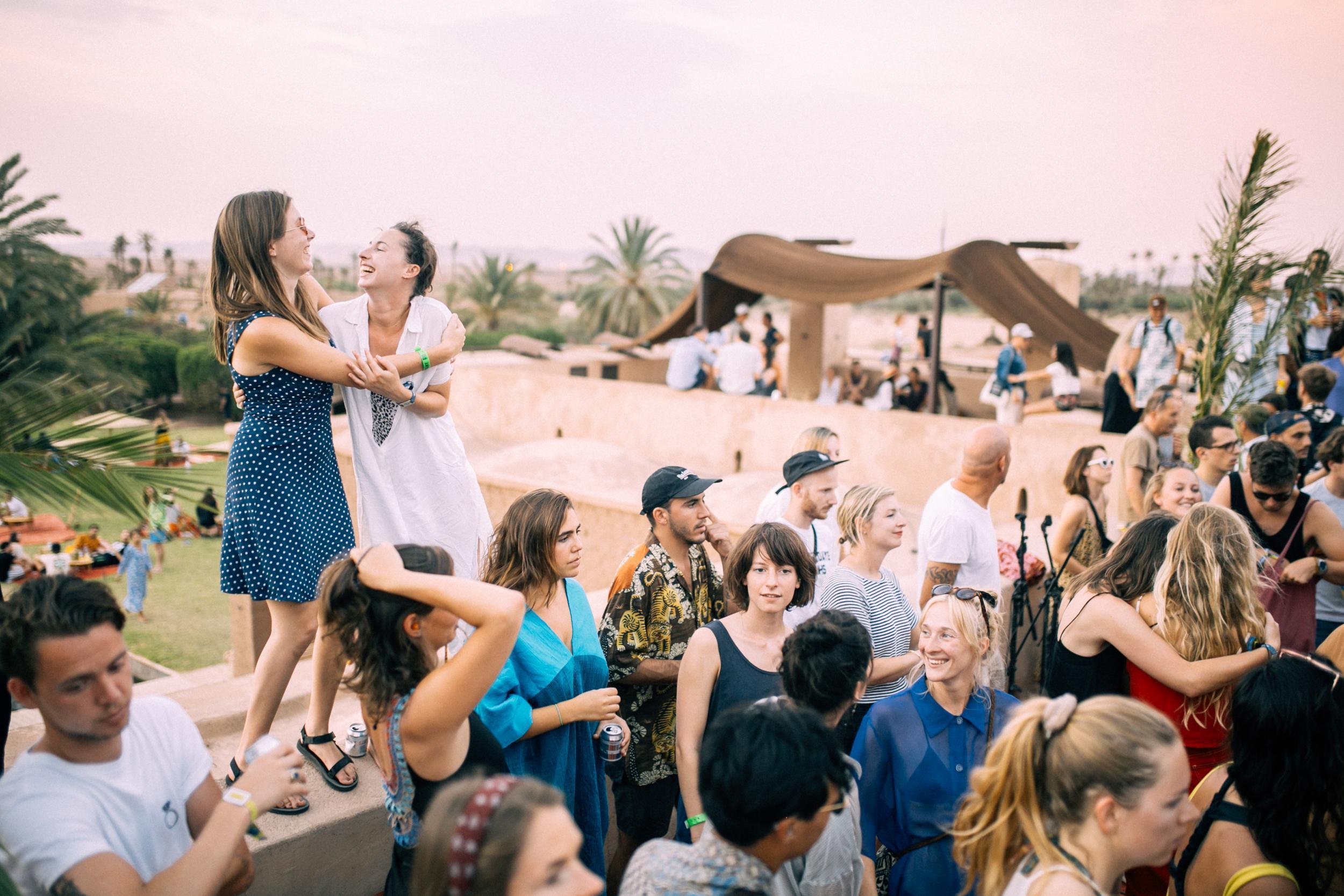
Your support helps us to tell the story
From reproductive rights to climate change to Big Tech, The Independent is on the ground when the story is developing. Whether it's investigating the financials of Elon Musk's pro-Trump PAC or producing our latest documentary, 'The A Word', which shines a light on the American women fighting for reproductive rights, we know how important it is to parse out the facts from the messaging.
At such a critical moment in US history, we need reporters on the ground. Your donation allows us to keep sending journalists to speak to both sides of the story.
The Independent is trusted by Americans across the entire political spectrum. And unlike many other quality news outlets, we choose not to lock Americans out of our reporting and analysis with paywalls. We believe quality journalism should be available to everyone, paid for by those who can afford it.
Your support makes all the difference.An idea has gained some traction lately that posits Morocco as the new Croatia on the electronic festivals scene. Having read and heard about the 2016 editions of the three main ones to spring up in the country so far, however, it seems one was an unmitigated financial and organisational disaster, and another far too boujy for its own good, with a line-up that's becoming ever more and more uninspiring and obvious. That left Atlas Electronic, a four-day event run by a young team of mainly Dutch promoters at Villa Janna, a beautiful ecolodge a few miles outside Marrakech, as the only truly appealing choice for a taste of this new wave of Moroccan festivals.
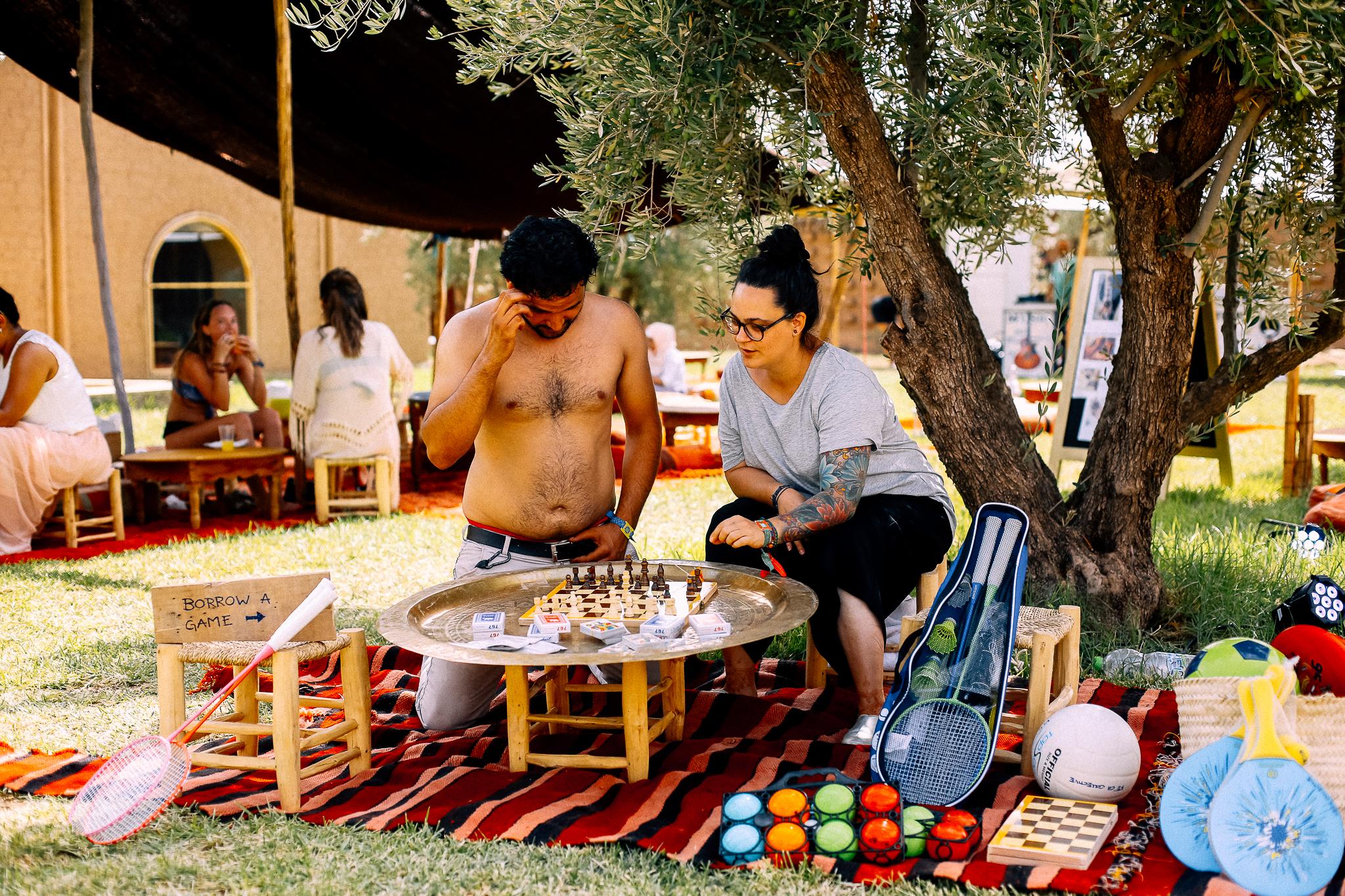
I arrived in Marrakech to 40-degree heat, groggy from a long, complicated journey, but found myself instantly enlivened on entering the venue. Atlas has three main stages – the self-explanatory Pool stage, the spectacular, Roman-style Amphitheatre stage, and a smaller rooftop area with amazing views over the desert, from where Amsterdam's Red Light Radio were broadcasting live all weekend. In addition was a small ambient room, which was a nice idea in theory but was so dark and hot I couldn't spend more than a couple of minutes there without becoming drowsy. Nevertheless, Villa Janna, with its quintessentially Mahgrebian buildings made from raw earth, welcoming expanses of grass and shimmering water features, is incredible to look at, and I was still gazing around in wonderment as I prepared to leave on the final night.
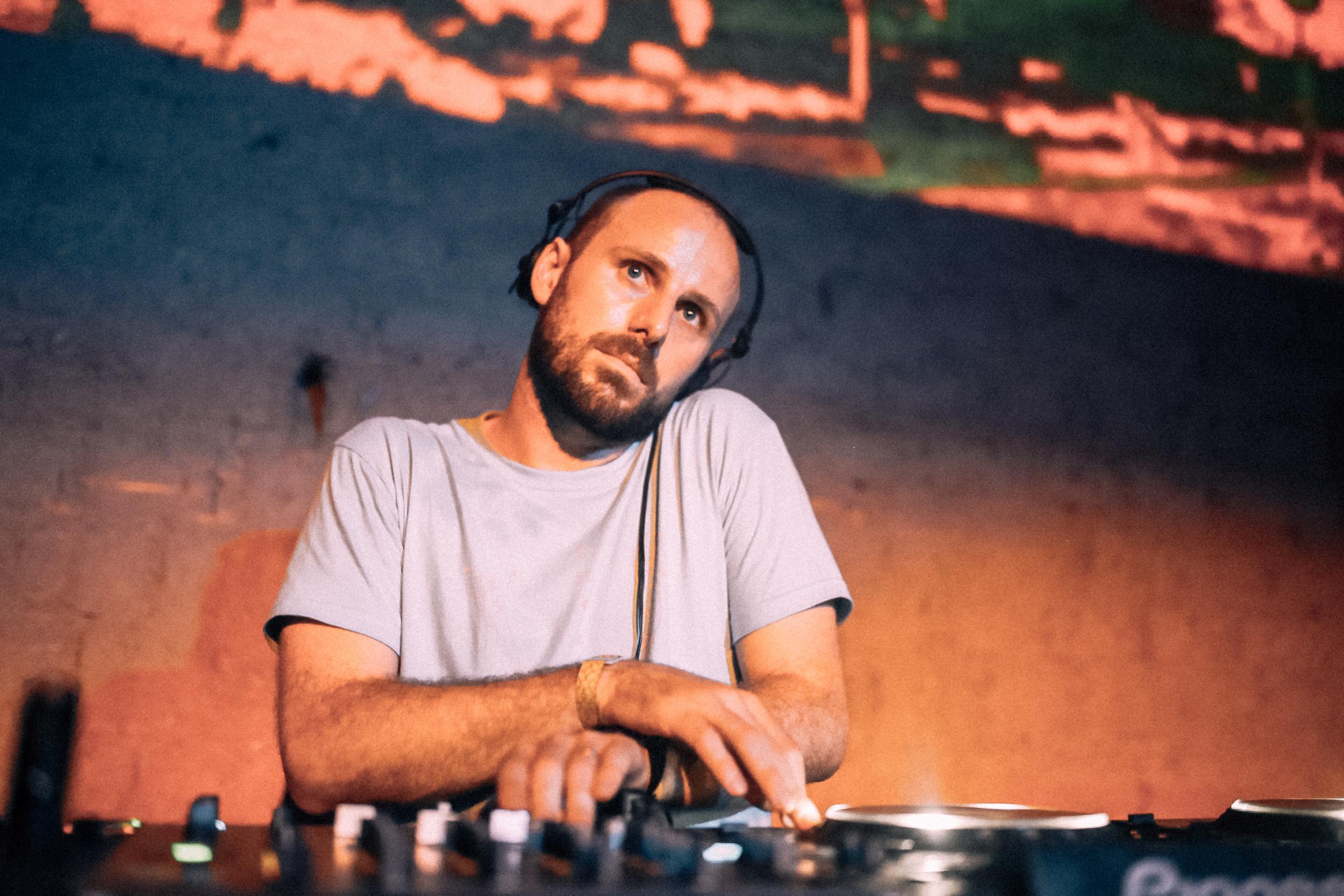
My fatigued state on arrival demanded an evening of sure things, so after Midland's set at the Amphitheatre I headed for Bicep (actually a “Bicep Soundsystem” solo show from Andy Ferguson, Matt McBriar being away on other business) by the pool, and allowed myself to be swept along on a wave of under-the-radar rave classics and on-point modern analogue jams, the squirming euphoria of Legowelt's “Institute Of The Overmind (Photonz Remix)” being a particular high point.
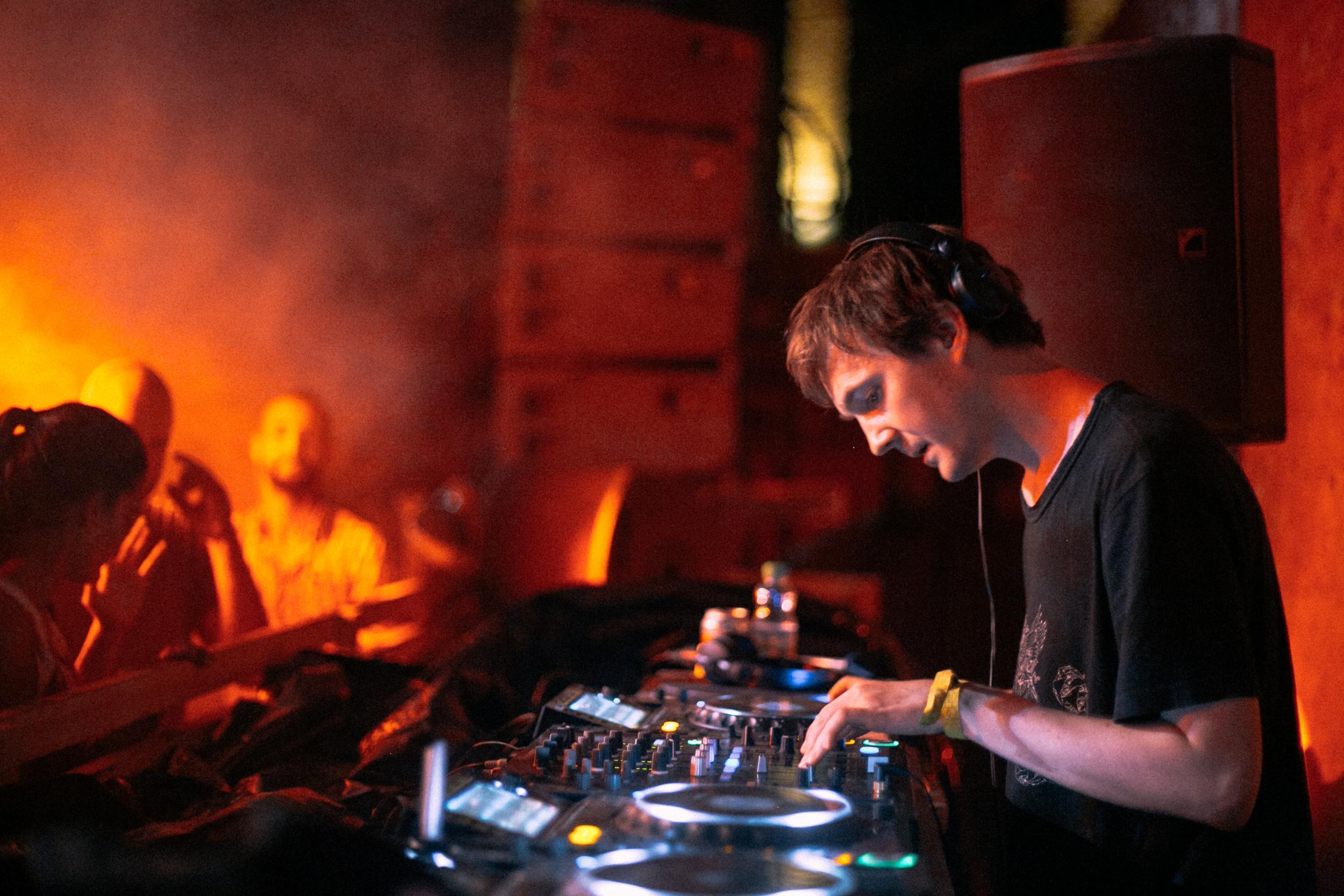
Back at the amphitheatre, I stood on the sandstone steps watching Ben UFO's set with another much-respected English DJ who had played earlier in the day, and we chatted as we looked down at a large, happy crowd. “I really like that we're all playing a bit faster these days,” he said, referring to a recent quickening of pace embraced by UFO and other like-minded selectors which has taken their typical beats-per-minute rates from the middle-120s to 135 or more. I've also watched this change with satisfaction – Ben UFO, unsurprisingly, has put the shift to better use than anyone. “He's easily the best DJ of his generation,” his colleague added, marvelling as his friend slid a lustrous slab of chest-puffing dancehall into a high-bpm techno banger like it was the easiest thing in the world. “I've seen him play a hundred times and he still amazes me. He's a fucking badman.”
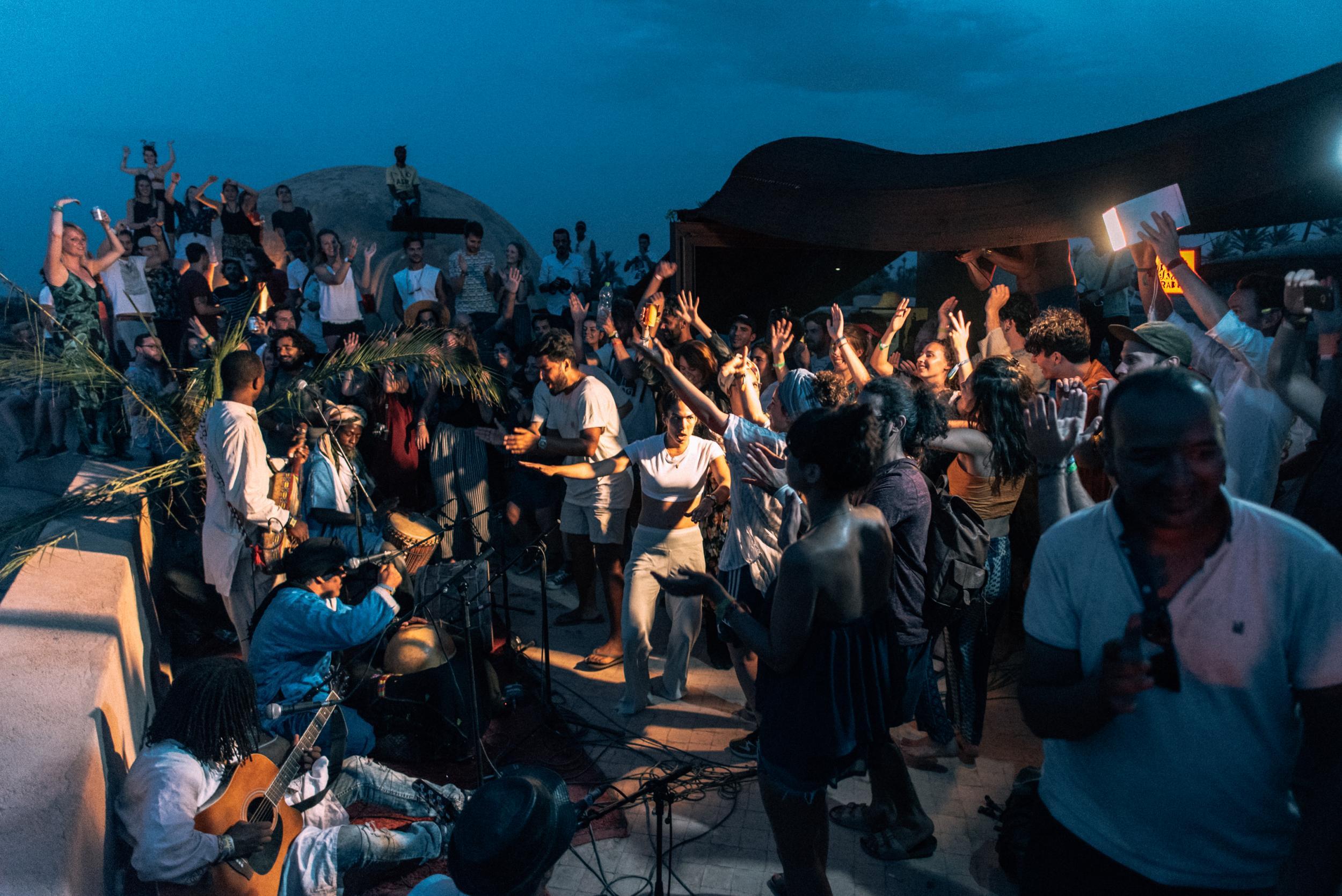
The following day I returned rejuvenated to Villa Janna early enough to enjoy one of Atlas's finest sights: sunset over the desert from the vantage point of the Red Light Radio Stage, and stayed on to enjoy a glorious hour of traditional Bedouin music from Amazigh Blues, a band from the Merzouga Desert who had apparently driven 11 hours through the night to appear at Atlas. This kind of booking, combined, perhaps, with a slightly more varied spread of international names (the live acid of someone like Legowelt or Xosar, for example, would be a nailed-on winner in the spectacular environs of the amphitheatre) can truly set Atlas up as the educated and open music fan's choice in Morocco for years to come.
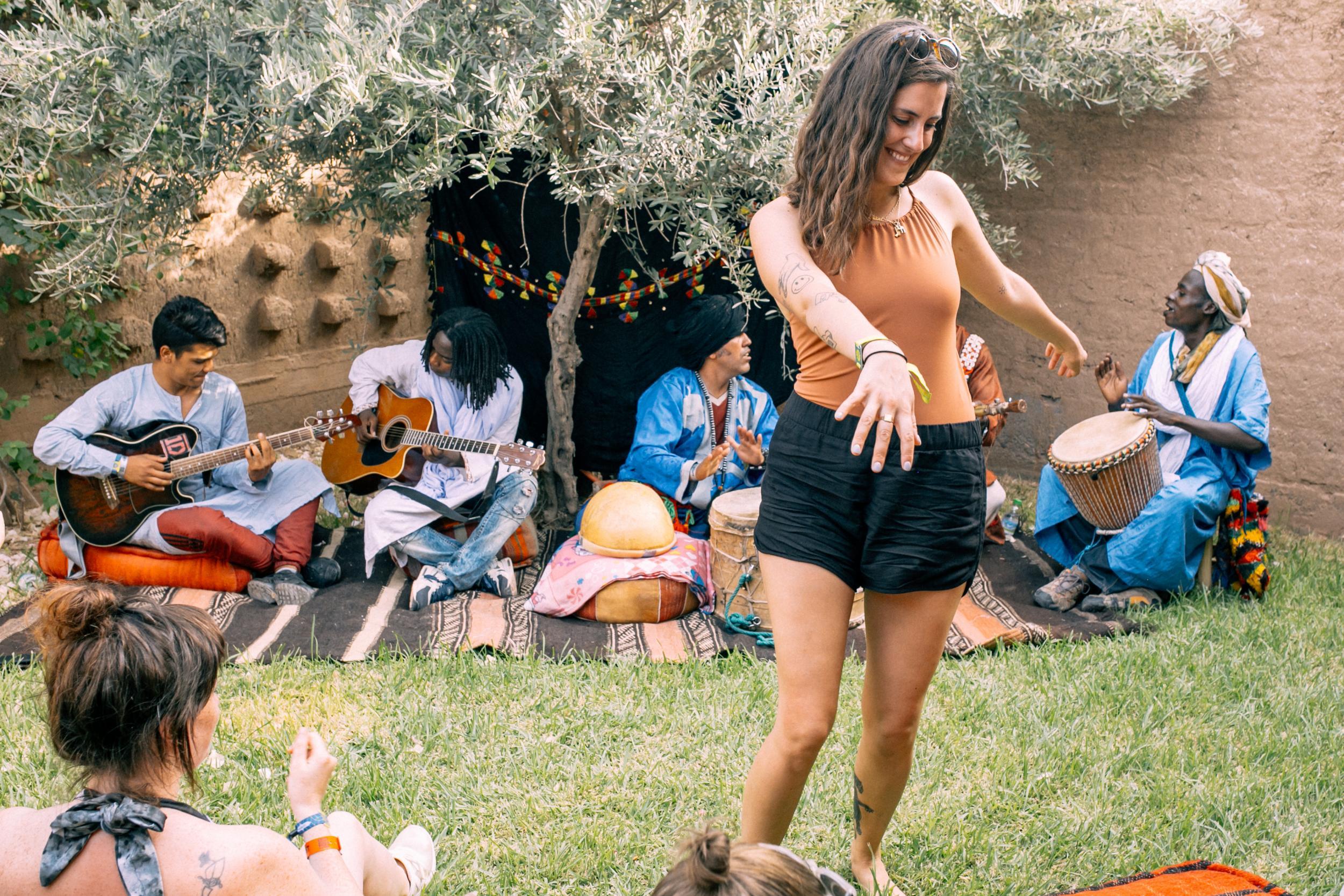
Many artists played more than once over the weekend, and given the small scale of the event (numbers peaked at 1,200, and the plan is to cap attendance at 2,000 in the future to preserve this intimacy) it wasn't uncommon to find yourself next to Shanti Celeste (who played a fabulous Saturday-night poolside set culminating in Octave One's incomparable “Blackwater”), Saoirse, Awesome Tapes From Africa or several other prominent artists who stayed and danced their way though the weekend. Sunday was largely spent in demob mode at or around the Red Light Stage, where Moroccan DJ Driss Bennis underscored Atlas's stated commitment to being “a cultural bridge” between Europe and Africa by dropping the Scottish producer Lanark Artefax's instant classic “Touch Absence” to a rapturous reception, especially from myself. Following Bennis was Floating Points, whose objectively excellent sets of soul and disco are suffering a little from overfamiliarity at this stage. I drifted off after a while to take in segments of Saoirse's set at the Amphitheatre and San Soda's by the pool, and didn't regret the decision.
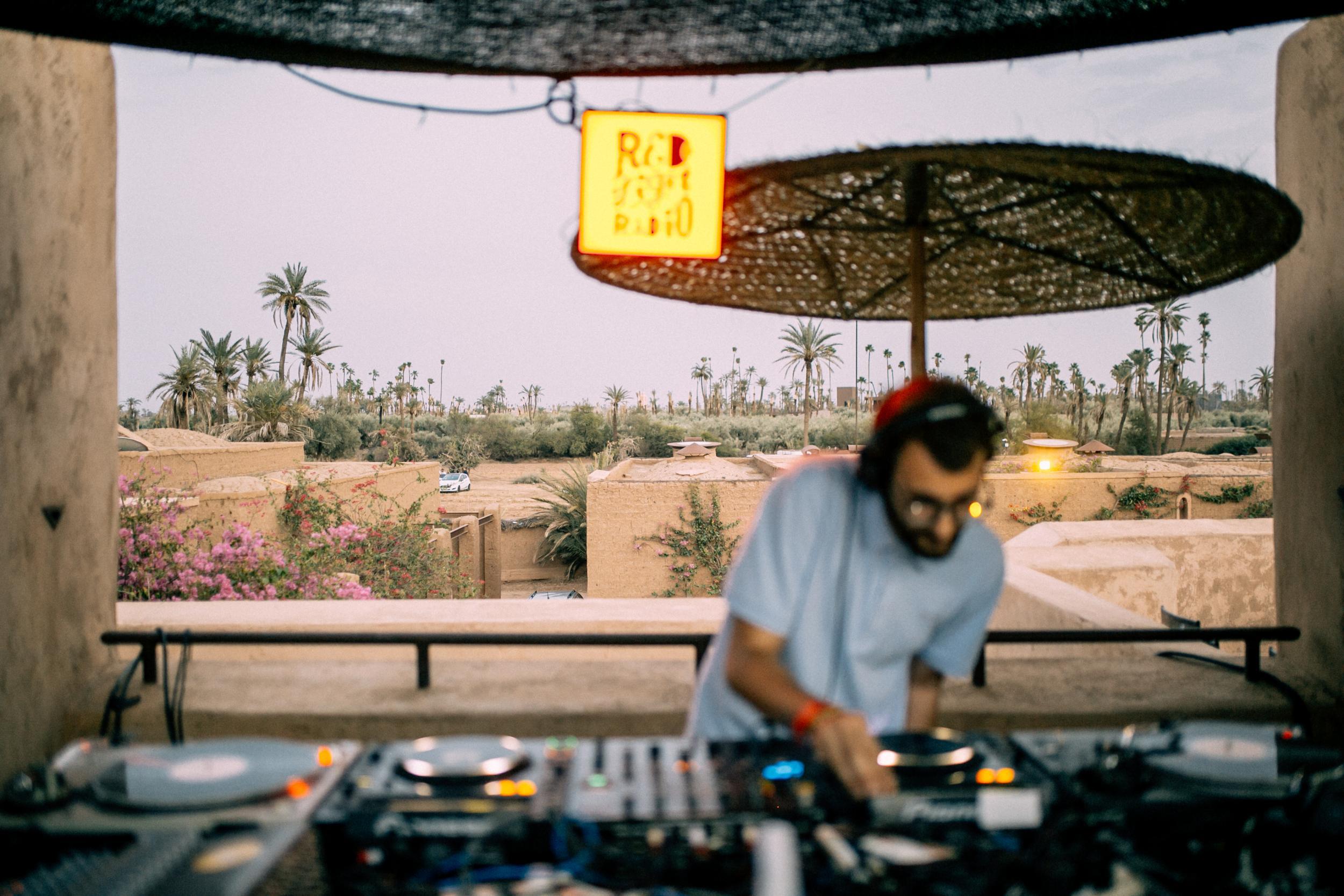
All the talk as Sunday went on was of Floating Points' festival-closing set at the Amphitheatre, but the perfect end for me came instead from an impromptu b2b at the Red Light Radio Stage, where Shanti Celeste and Saoirse added some Arabic-sounding touches to a jubilant hour of fresh, lively house. Pulling an event like this off in a country like Morocco would be hard enough for people with longstanding local connections and years of experience. That a team of young promoters from northern Europe managed to execute the second edition of Atlas with so few hitches is pretty extraordinary, and bodes extremely well for the festival's future.
Join our commenting forum
Join thought-provoking conversations, follow other Independent readers and see their replies
Comments